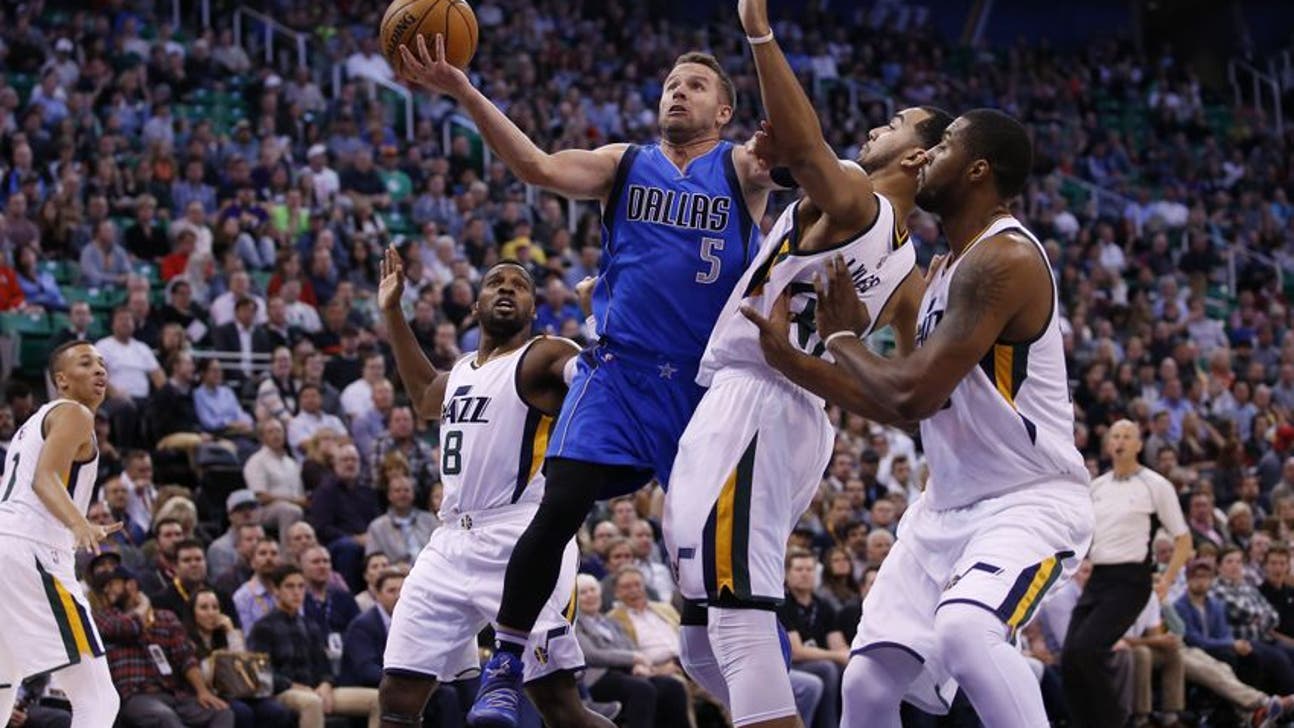
Do the Utah Jazz Have a Power Forward Problem?
As the Utah Jazz continue to battle inconsistency, power forward play has been a reoccurring weakness that the team will have to shore up.
While there isn’t a lot of room for Utah Jazz fans to complain this season as their team is currently 22-14 and in the thick of the Western Conference playoff race, after getting a taste of what this team is capable of following big wins against the likes of the Spurs, Rockets, Grizzlies and Thunder, it’s human nature to simply want and expect more.
The Jazz have looked incredible for stretches, but on other occasions have been subpar at best. Obviously injuries have played their role in Utah’s inconsistency as their starting five has only logged two full games together, but even so the Jazz have still left much to be desired in a few areas.
And principal among those areas this season has been their power forward play. Yes, both Boris Diaw and Derrick Favors started out the season hurt, justifying their slow starts, but now that both are back and supposedly healthy (although it’s obvious Favors isn’t quite healthy), it would definitely be nice to get more out of them.
Trey Lyles, on the other hand, has been about as streaky as they come. Despite showing some incredible potential at the end of last season and looking like a rising star during the Summer League, he’s been pretty hit and miss this year.
Despite supposedly boasting a solid shooting touch for a big man, he’s shooting under 40 percent from the field and 32.1 percent from deep. Excluding Alec Burks’ meager three minutes of play this year, Lyles is posting the team’s worst field goal percentage and the second worst three point shooting percentage among players who average at least one attempt per game.
Not to mention, his defense has been anywhere between not good and downright atrocious so far this season. I believe KSL’s Andy Larsen described the Jazz’s PF situation best in the following tweet:
But it’s possible that it’s even worse than that. In all reality, all three guys have been pretty dang bad on both ends of the floor, not just in the one aspect that he mentioned. However, one minor plus is that veteran Boris Diaw, who started out horribly, is at least finally trending positively.
After starting the year going 1-of-11 (9 percent) from the field and missing all his three-point attempts in the first three games, he’s finally been able to elevate his averages to a respectable 46.1 percent field goal shooting and 35.1 percent from behind the arc.
Nevertheless, he still continues to log notoriously bad games, especially when it matters most such as his 1-of-5 night against the Warriors or his 1-of-3 performance against Toronto.
Always good to win, especially at home and you showed up tonight fans! Thanks all, for following me and all the kind messages. #takenote pic.twitter.com/WuuihByBhM
— Boris Diaw (@theborisdiaw) December 30, 2016
What’s worse has been that when one power forward is struggling, Coach Snyder hasn’t had the luxury of simply swapping one out for the other as all three have continually logged poor games at the same time.
I’ve already mentioned Lyles’ struggles with shooting and defending, but Utah’s renowned starter Derrick Favors has simply not been able to get it going at all this season.
Formerly a near double-double guy on a nightly basis, Favors is averaging just 8.6 points and six rebounds per game. He’s also shooting a career low 44 percent from the field. Since returning from injury on December 14th, he’s logged just one double figure scoring game, which actually came last night against the Celtics.
He also shot 50 percent in that most recent performance, so perhaps Favors is in fact on the upswing. Utah certainly needs that to be the case, but unfortunately, one game does not prove that the slump is broken.
Nice take, Fav! ????#UTAatBOS pic.twitter.com/jUAjADiJWv
— Utah Jazz (@utahjazz) January 4, 2017
Finally, none of the three have been able to find much of a rhythm on the floor and it shows clearly in their plus-minus. Currently, Dante Exum is the only player on the roster who averages more than 10 minutes per game and a negative plus-minus, but Lyles is directly above him at a plus-minus of exactly 0.0.
Then Favors and Diaw aren’t much better as they come in at 0.9 and 1.7, respectively. Compare this to the likes of the other starters, Rodney Hood, Gordon Hayward, Rudy Gobert and George Hill who come in at 4.7, 5.4, 5.7 and a whopping 9.8, respectively, and it’s clear that Utah’s power forwards have a long ways to go.
Each power forward also ranks in the team’s bottom half in defensive rating and Lyles sticks out most notably with a rating of 104 points given up per 100 possessions.
More from Purple and Blues
Thus, it’s pretty clear that the power forward position has been a pretty significantly weak link for the Jazz so far this season. Yet, while perhaps the numbers of Trey Lyles, who has been healthy all season, are the most alarming, then again it is just his second year of NBA action so there’s plenty of time for him to improve.
Furthermore, Favors posted his best game since returning to action from the knee injury yesterday and Diaw’s numbers are becoming increasingly more respectable, so hopefully both of these are an indication that while power forward play has been bad so far, perhaps it will steadily improve from here.
Because if Utah hopes to maintain it’s spot in the Western Conference playoff race and truly challenge the best teams in the league, getting the most out of the position will be an absolute must.
All stats courtesy of NBA.com
